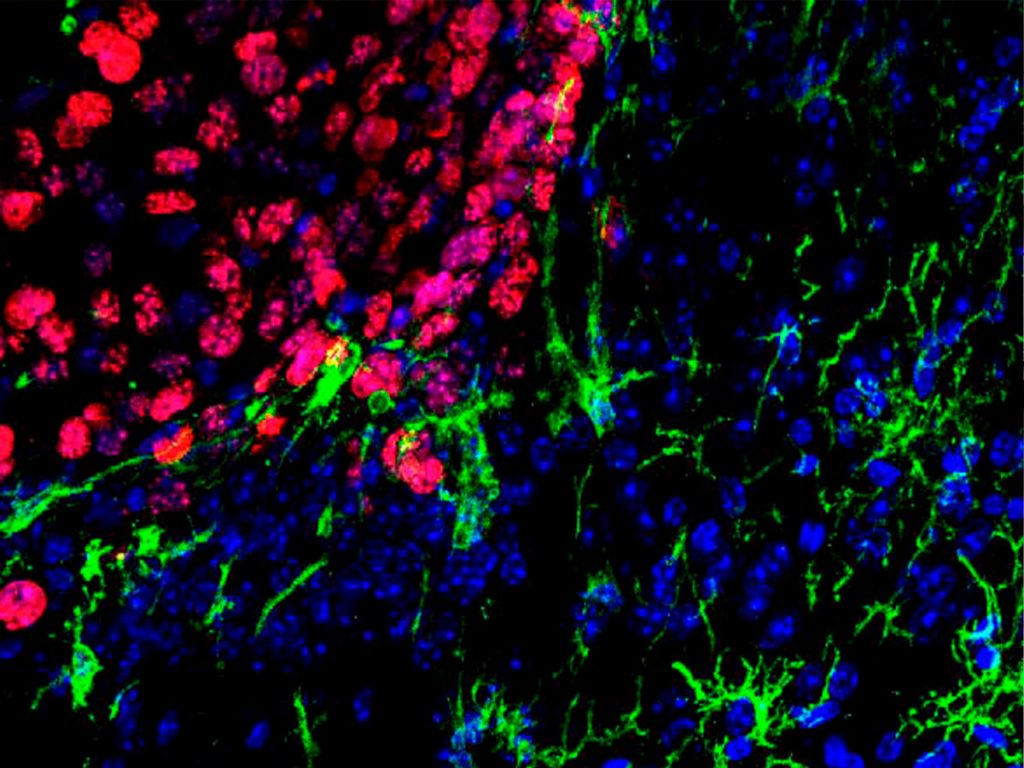A study by the UMH-CSIC Institute of Neurosciences discovers an innovative technique to stop brain metastases from melanoma
Biología, ciencia, Research and Innovation, medicina
Berta Sánchez-Laorden, cáncer, Cancer Cell, inmunoterapia, Instituto de Neurociencias, melanoma, Rela/NF-kB
10 February 2025
Researchers from the UMH-CSIC Institute of Neurosciences have taken a crucial step in the fight against melanoma, one of the most aggressive skin cancers, by identifying an innovative strategy to combat brain metastases. This advance, published in the journal Cancer Cell, opens new possibilities to improve the treatment of melanoma patients who develop tumors in the brain.
The study led by Berta Sánchez-Laorden, principal investigator of the Laboratory of Cellular Plasticity in Development and Disease, demonstrates that microglia, an immune cell resident in the brain, can be manipulated to slow the growth of brain metastases. The researchers discovered that by blocking a key signaling pathway, Rela/NF-kB, microglia can be reprogrammed from a state that promotes tumor growth to one that enhances the antitumor response.
In preclinical mouse models, blocking this pathway not only slowed the progression of brain metastases, but also improved the response to immunotherapy, a treatment that has already revolutionized the treatment of melanoma but does not work in all patients. By reprogramming microglia, the cells sent signals to the immune system, activating T lymphocytes and natural killer (NK T) cells to more effectively attack tumor cells.
The results of this work, which also included the characterization of patient samples, suggest that this strategy could be combined with existing immunotherapies, improving their efficacy and offering new hope for patients with brain metastases. In addition, the researchers point out that this approach could have applications in other types of cancer that metastasize to the brain, such as breast or lung cancer.
This discovery not only marks an important advance in the understanding of the interactions between the immune system and brain metastases, but also opens the door to new therapeutic combinations that could improve patient survival. Although there is still some way to go, the research team is already working to explore how to translate these findings into clinical treatment, evaluating the potential of Rela/NF-kB inhibitors, already approved for other uses, in the treatment of melanoma.
The study has been prepared thanks to the support of various entities such as the Melanoma Research Alliance, the FERO Foundation, the State Research Agency – Ministry of Science, Innovation and Universities and the Carlos III Health Institute (ISCIII), among others.
More information: https://www.youtube.com/watch?v=gvXpG5kY5ng
Source and images: UMH Communication Service / UMH-CSIC Institute of Neurosciences









